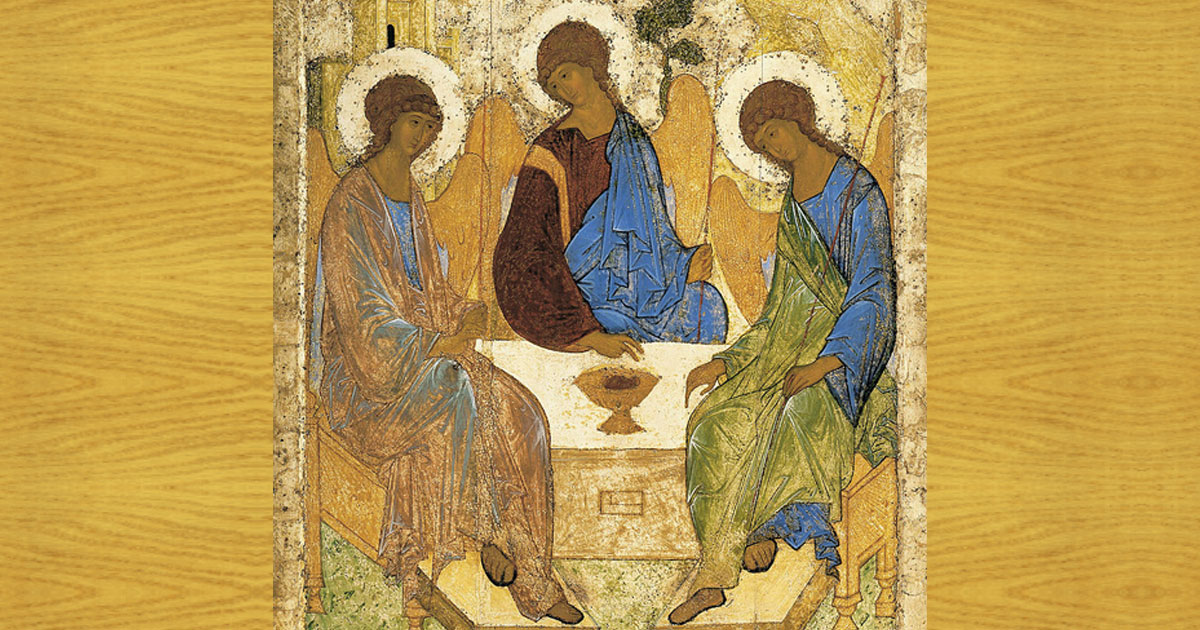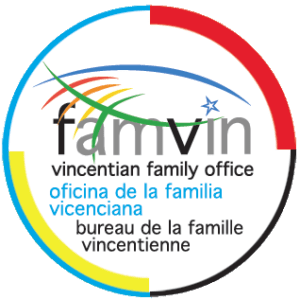Trinity – From Puzzle To Be Solved To Model To Be Lived
The Trinity! It has described as the preacher’s nightmare, the ultimate Rubik’s cube of theology. A great theologian of the last century wondered whether, if we no longer mentioned the Trinity, would most Christians even notice. After all, it is about Jesus, we are “Christians”. Yet, the Trinity is something we, often unthinkingly, celebrate when we make the Sign of the Cross… “in the name of the Father. The Son, and Holy Spirit!
As I reflected on Trinity Sunday this year, I realized I have been on quite a journey. I invite you to join me in this Vincentian Mindwalk. Some of you may relate to different phases of the journey.
What I grew up thinking
I grew up with two thoughts. It was a mystery that no one could explain except maybe by using the image of a three-leaf clover. I realize now that the focus was on a kind of theological math. How could there be three persons in one nature? I never thought about the “why” and “what” I could learn about myself from this mystery. Oh, and the Father, despite being described as loving, was a ruler who needed to be placated… Jesus came to tell us that he stood in for us..The Spirit was talked about mainly on Pentecost or when we received the sacrament of Confirmation. Over simplifications, yes! Yet, for all too many, looking back I wonder how much.
Highlights of my journey
It came as a surprise to me to realize how much of a journey I have been on.
- It has been a journey from Trinity as a puzzle to Trinity as a model for my life.
- It has been a journey from an intellectual understanding to a mystery to be lived.
- It has been a journey from an emphasis on three distinct persons to an insight into ourselves as a community made in the image and likeness of the ultimate community we name as God.
- It has been a journey of slowly recognizing that the Good News is that we are made in the image and likeness of a community of persons and that is why it is not good for us to be alone but to live as the one Body we are. That is why we too are many persons united as one body.
- It has been a journey from imagining God as a noun to realizing God is verb. “Be like the God in whose image and likeness we are made. Be perfect as you’re heavenly Father is perfect”. (The underlying verb means“to grow to maturity!”
- It has been a journey from imagining God as a noun to realizing God is a verb. “Be like the God in whose image and likeness we are made.”
My maturing image of the church
All this has a profound impact on my understanding of the mission of the church. I now look at the church as fulfilling its mission when others can say with wonderment “See how these Christians love one another and find unity in their distinctness.”
I now look at the Eucharist, not as something focused on what the priest does but as the reminder that our God is a servant God. A God who came not to be served but to teach us how to serve even to the last drop of our blood.
We should not just attend Eucharist but live lives that imitate Christ, who pointedly asked at the Last Supper: “Do you understand what I, your Lord and Master, have done? Do this in memory of me, wash one another’s feet.” Then we will understand the last judgement… whatsoever you do to the least of my brothers and sisters you do to me.
Then we will live out of the realization that we are made in the image and likeness of the divine community.
A Trinitarian examination of conscience…
- How conscious am I of being made in the image and likeness of a community we call God?
- How did saints like Vincent and Louise translate this in their lives?
- What is my greatest challenge in living out of that awareness?
This post originally appeared on Vincentian MindWalk







For me up to now, it has largely been a journey of thinking I know when, in fact, I don’t. A journey of not going forward and, therefore, of falling back (SV.EN II:146 https://via.library.depaul.edu/cgi/viewcontent.cgi?article=1027&context=vincentian_ebooks), of being stuck in a rut or stagnating in familiar teachings and routine reflections and meditations.
I have, of course, known all along since catechism days that God is ultimately incomprehensible. But now, it is not so much a matter of theory but of experience, as I struggle to express what I have in my head and in my heart, and find out how little my knowledge is and how poor my language to grasp and express the reality that is so much richer than I think. It is a journey of the mystery deepening and the plot thickening, as it becomes obvious that God is so much more beyond my understanding, description and expectation. Of being surprised when the thing I’ve written seemed to suck but only to make connections with other, and when what seemed to be good turned not to be so welcomed by others.
So, it is a journey too of having to learn and re-learn, from, among others, you, John, and Tom, as my citing you both often shows. Also, a journey in knowing that there are more important things than thinking and writing about God, like attending to a crying infant I’m babysitting or a grandson having tantrum or a granddaughter who wants me to go outside with her to play.
I don’t know how the journey will end. I hope like that of those, who were told, “Come, you who are blessed by my Father,” and somewhat like Thomas Aquinas’—though I do not have even the slightest claim to any fame whatsoever—who supposedly just became speechless, refused to write anymore, and considered all his works to be mere straw (https://international.la-croix.com/news/st-thomas-aquinas-official-patron-saint-of-burnout/6581#).
An enjoyable reflection to read. . .